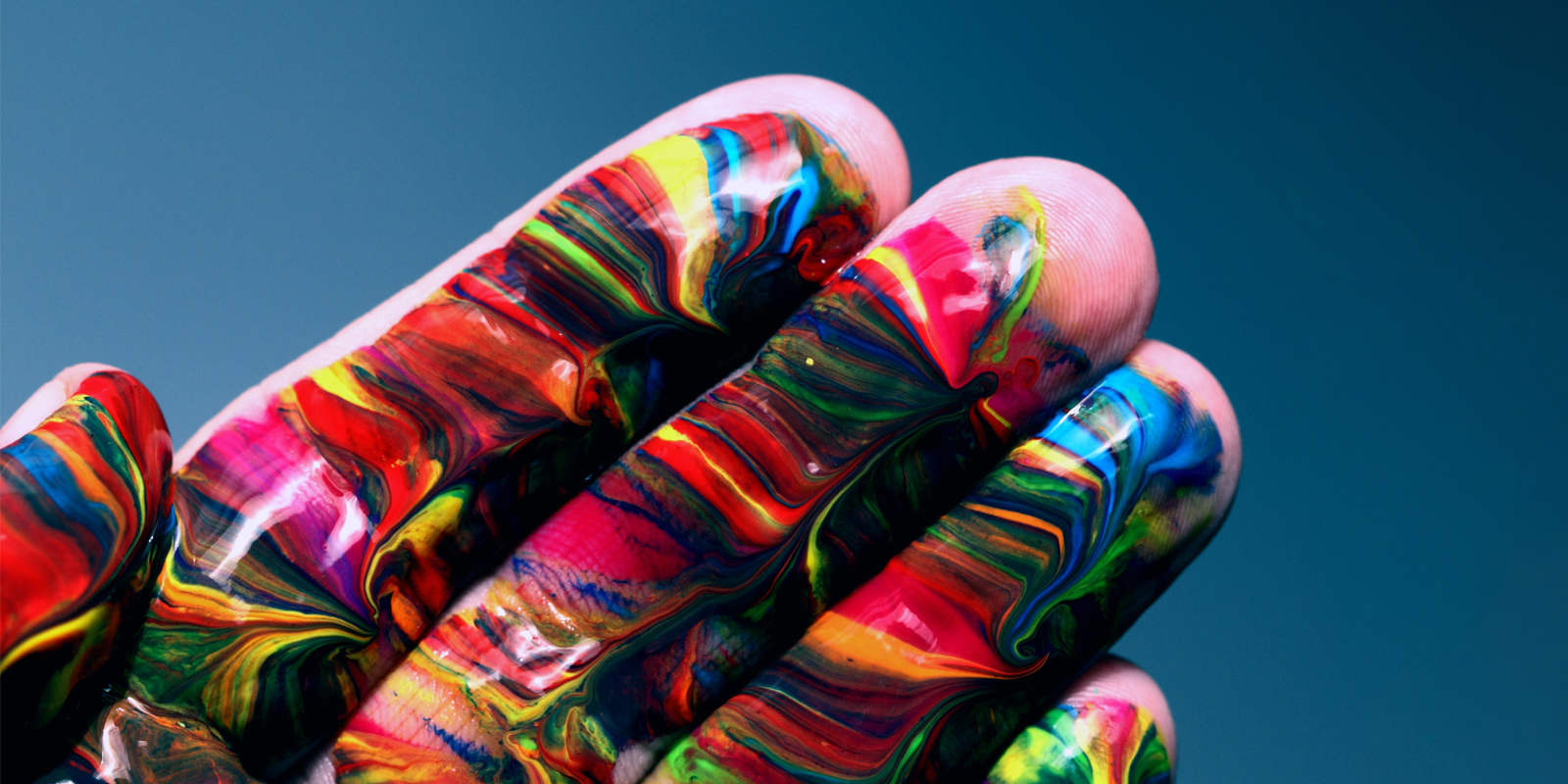Every year, the industry answers the call of the Croisette when the Cannes International Festival of Creativity takes place at the Palais des Festivals. But do yacht parties, free flowing bubbly and lavish displays of excess still have a place in a time where we’re faced with serious socio-economic shifts? Filipe Gouveia, Global Account Director Crossmedia London, shares his takeaways after attending the world’s most prestigious advertising awards.
Last week I was fortunate enough to jet off (or rail off, to be precise) to the French Riviera to attend the Cannes Lions International Festival of Creativity. Every year the advertising industry gathers at this week-long celebration of great creative work, packed with inspiring conversations, and fuelled by copious amounts of content, networking and rosé. The work on show is of the highest standards and it provides a fantastic opportunity for all of us to take solid learnings from it, which we can then apply to our own craft.
During the festival, the waterfront Boulevard de la Croisette turns into a row of beach takeovers, with agencies, media owners, ad tech companies and many others setting up their own stands. Tens of thousands of people mingle together to discuss the future of the industry, its problems, how to improve it and make it more meaningful. The amount of content one is exposed to can feel overwhelming at times, so being selective is crucial.
That’s when FOMO usually takes over, but trying to see and attend all of that’s on offer can be a test to anyone’s fitness – I clocked an average of 22,000 steps/day over the 4 days I attended the festival, the same number of steps taken by someone running a half marathon. If your stamina allows you to continue, you can also enjoy a vast offer of nighttime entertainment, parties and bars, and there is certainly no shortage of drinks being poured.
Sounds like an extremely lavish extravaganza? That’s probably because it is. And that’s also why this festival is both inspiring and controversial in equal measure. Year in, year out, the industry debates if the festival adds enough value to justify its existence. Delegate passes are expensive, and companies spend a lot of money to be there. And in the current cost-of-living crisis this certainly raises some eyebrows.
But in my opinion, there is tremendous value to it. It facilitates debates which are deep and meaningful, the networking happening across town opens a plethora of opportunities and the exposure to the best work and minds in the industry provides invaluable inspiration. And it gives everyone taking part a sense of pride in the craft of the industry. Obviously not all is perfect and there is certainly a lot that can be improved. To sum that up, I’ve put together some personal thoughts on what’s good and where Cannes could step it up in the future.
Five things that make Cannes Lions an extremely valuable experience
- Great work should be celebrated
It’s undeniable that the work on show at Cannes is always outstanding. The level of craftmanship it shows is second to none and it sets the standard the whole industry should aim for. This year was no exception and we saw some amazing campaigns take home their deserved awards, such as Where to Settle, The Life Collection, Knock Knock, The Last Photo, A British Original or Turn your back (to name a few). This is work that has an impact and pushes the limits of creativity. And great work should always be celebrated.
- It provides inspiration to the whole industry
This happens on so many levels. The award-winning work, the talks, the conversations you have – all of these are inspiring, no matter if you just started in the industry of if you’ve reached veteran level. Of course, not every single element will leave you in awe, but in general it is fantastic, particularly the sessions inside the delegate-only areas. I particularly enjoyed the extremely candid interview with Susan Hoffman from W+K, Paula Bloodworth, Rob Campbell and Martin Weigel’s Strategy Is Constipated, Imagination Is the Laxative talk and the whole WARC track of talks.
- It brings the industry together
And it makes us feel part of something bigger. Makes us understand that there is a strong purpose in the work we do, and that it has immense value to our clients. It fosters unpretentious connections at all levels – it’s not uncommon not see someone junior engaging in a 3-hour long meaningful conversation with someone very senior.
- It provides a space for open debates
The high volume of panels and talks facilitates critical conversations, which help shape the direction in which the industry should go. It provides a fantastic stage to discuss meaningful topics – I was particularly impressed with how much this helps to drive the conversation and the agenda for DE&I. And it was equally refreshing to see an organization like Extinction Rebellion being invited to take the centre of the stage.
- It’s fun. And there should be no shame in that.
Our industry is a fun industry. We all work hard at our jobs and try our best every day to do the best for our clients. Having fun is absolutely fine. We all deserve it.
Five things I would like to see improved at Cannes Lions
- Make it accessible to everyone
At times, Cannes can feel like a private members club – there’re lots of senior people floating around and enjoying their time but it’s juniors in particular who would benefit hugely from the inspiration they’d take from attending this event. But it is expensive. Companies should make an effort to give this type of opportunity to everyone – in fact, younger people have access to much cheaper delegate passes. Organizers should think of ways to facilitate this too – why not make agreements with hotels in Cannes who agree to provide reduced rates to younger delegates?
- Talking about sustainability is not enough
Sustainability is one of those buzzwords that is everywhere. Cannes is no exception. But words are not enough – if companies in the industry mean business, they need to walk the talk. Yes, there are some initiatives in place, but overall, it feels like an afterthought. One thing that shocked me is the vast amount of merchandise being handed out, most of which will likely end up at the local landfill.
- Lots of content doesn’t mean great content
As I have mentioned before, there’s a plethora of content which is truly inspiring, particularly inside the festival venue – be it talks, panels, workshops, or awards ceremonies. But a large part of that content across town also felt unnecessary – repetitive topics (yes AI, I’m looking at you), lots of common places and no provocative discussions. It also made it feel extremely overwhelming to decide what to attend and what not to attend. Hopefully next year we’ll see a bigger focus on quality over quantity of content.
- Make media creative
Creativity is the talk of town, but at times it feels like this is an attribute exclusive to creative agencies. I would love to see more talk about how a media strategy turned a good creative concept into a great campaign. About the unique media placements that made everyone’s jaw drop. About the amazing campaign where the medium was the message.
- Let us hear more indie noise
Independents do win a great number of awards for the amazing work they produce. But walking across town you’d think this is a party exclusively for the big tech and network agency groups. Other than a few small events, there is very little to be seen in terms of indie presence. I truly hope to see more indies make some noise in the future!












Great points, Filipe! Agree on all fronts, especially sustainability. Online Marketing Rockstars (OMR) this year in Germany did have a lot of people flying in…. but they also made vegan food (and Oatly milk) the norm for food & bev, and incentivised recycling.
It was great to actually SEE people – especially when you work in a global role, happens far too infrequently. I caught up with so many international colleagues with my one roundtrip flight, arguably making it a more sustainable choice than going to each individual location. 🙂